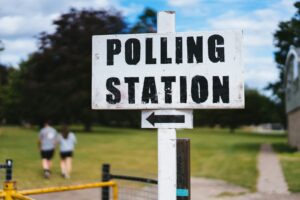Voluntary groups delivering services are backing off from campaigning for the interests of their service users and communities. This is the conclusion of the latest in a series of reports from the National Coalition for Independent Action looking at how charities and voluntary groups involved with service delivery are faring in today’s world of cuts and contracts.
Saying Less and Doing More by Dr Mike Aiken reveals a climate of fear and muzzling of freedom of expression. Though small informal groups and activists are still very much in evidence, local voluntary services groups who historically combined their services with advocacy and campaigning are under increasing pressure to button their lips and some larger charities who are ‘contract heavy’ show much less interest in campaign work for their disadvantaged clients.
The report states: ‘The injunction to silence knowledgeable voluntary groups from talking about their experiences would be quite at home in any totalitarian regime seeking to crush independent and divergent voices’.
There are also more explicit restraints, such
as service contracts that include gagging clauses
The report’s publication follows on the tails of a Charity Commission investigation into Oxfam after the charity warned of the ‘relentless rise of food poverty’ in the UK and adds to fears raised by the ex-Bishop of Oxford, Richard Harries, who has said that charities and campaign groups have been ‘frightened’ into curtailing their public work by the new lobbying act.
More than half of UK cuts in public expenditure are still to go, while at the same time there is a fundamental shift in power and resources away from democratic governance to powerful elites residing particularly within transnational corporations.
These corporations are doing well out of privatisation, while poor people are at the sharp end of cuts to living standards and dismantling of public protections. Many voluntary groups provide the last line of support for those affected. They are in a unique position to ‘show and tell’ what is happening to their beneficiaries and what needs to be done to put things right.
The research shows the multiple muzzles on the voice of voluntary groups. Many groups have suffered reductions in capacity due to cutbacks in their own funding and the fear of further cuts provides a powerful incentive to stay silent.
There are also more explicit restraints, such as service contracts that include gagging clauses, or which create ‘contract fascination’ and ‘mission drift’. And the lobbying act appears to be a successful move by the government to tie charities into knots, wondering what they are or aren’t ‘allowed’ to say.
The zeitgeist that acting politically is unacceptable; that swingeing cuts are accepted as ‘normal’; and the pressure for self censorship in a coercive atmosphere, are implicitly accepted by local and national ‘leadership’ bodies and only explicitly challenged in a nominal way. This leaves many groups isolated and without the connections needed to take collective action and speak out.
The report sought out and found some voluntary groups who do speak out despite the repressive environment. Most do not depend on state contracts and patronage. Smaller groups and networks have a much freer hand when compared to those delivering public service contracts. They appear strong on political education and analysis and are not afraid of ‘the political’.
These groups align themselves with their beneficiaries, often on specific issues, join in co-operation with other allies, and are willing publically to speak out, regardless of the consequences for their organisation or their professional status. Such groups are driven by ‘soft resources’ – vision, ethics, principles, justice; by authentic voluntary action, and not by funding and contractual requirements.
There are many examples in the report of groups which act against the impact of austerity and loss of social protections – from local activists to national professional bodies. Voluntary services groups can join with and learn from these examples. Funding can, and does, act as a brake on the ability to campaign. But all the examples of speaking out in the report, are associated with using – or finding room – to exercise discretion and an appreciation of tactics in order to do this.
The report calls on voluntary services to re-assert their unique position and role in civil society: offering support that actively works for collective social justice; using knowledge and experience to demonstrate better ways of meeting need while challenging the structural and root causes of poverty. This role is described as ‘an organisational responsibility and ethical duty rather than a ‘maverick intent’; to speak plainly and fearlessly, with authority and legitimacy, to enable the voice and experience of the most disadvantaged to be heard in the corridors of power and by other citizens.
- The report Voluntary Services and Campaigning in Austerity UK: Saying Less and Doing More can be read here.

















Leave a Reply